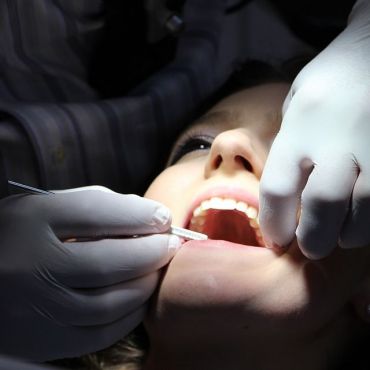Mouth Breathing’s Unknown Costs

It is a commonly held belief that there is no difference between breathing through our mouths vs. our noses, so long as we get air into our lungs. This, unfortunately, is not the case. A series of very serious changes can happen as a result of mouth breathing as we develop that can alter our lives.
Mouth breathing impacts two important things:
1. The amount of oxygen we get to our blood
2. Our facial development
When we breathe through our nose, we tend to breathe slower. This keeps the oxygen in our lungs for a longer period of time resulting in more oxygen exchange. Further, when we breathe through our noses, the air goes into the sinuses which has a very surprising and cool side effect. Our sinuses release a natural chemical (nitric oxide) which dilates blood vessels and allows for more blood circulation and therefore more oxygen throughout our bodies (to the tune of 10-18%). For an adult this is important, but for a child it is critical!
Children have very high oxygen needs because of their increased growth rates and metabolisms. If a child does not get proper oxygen levels, it can have an impact on physical, behavioral and cognitive development.
There are a lot of factors which control the way our teeth, mouths and jaw form including genetics, diet, behaviors, etc., but it has been shown that the main way our teeth and bite develop is a result of the muscles of our face, jaw, neck and tongue competing to guide our teeth into their proper position. If a child primarily breathes through their mouth, the tongue drops (go ahead, try breathing through your mouth and see what your tongue does!) and the muscles of the jaw, face and neck push the teeth inward. The result is a high, narrow palate, crowded teeth, a longer face and front top teeth dropping down more than normal (the term for this is Long Face Syndrome).
By the time a child is four years old, their facial development is 60 percent completed and by age 12 it is 90 percent completed. This stresses the importance of early intervention. Enlarged tonsils and adenoid, allergies and a deviated septum are all possible reasons someone night have mouth breathing tendencies. Signs to look for include dry cracking lips, snoring, puffy/red gums around the front top teeth, and tooth grinding. Even excessive bed wetting can point to airway issues and can lead to or be a result of mouth breathing.
The movie character, Napoleon Dynamite played by Jon Heder, is an example of someone with long face syndrome. Your dentist can see early signs which can help to get you or your child to the appropriate health care provider for evaluation and appropriate treatment.
Dr. Richard Weber
Love Your Smile Dental



Add Comment